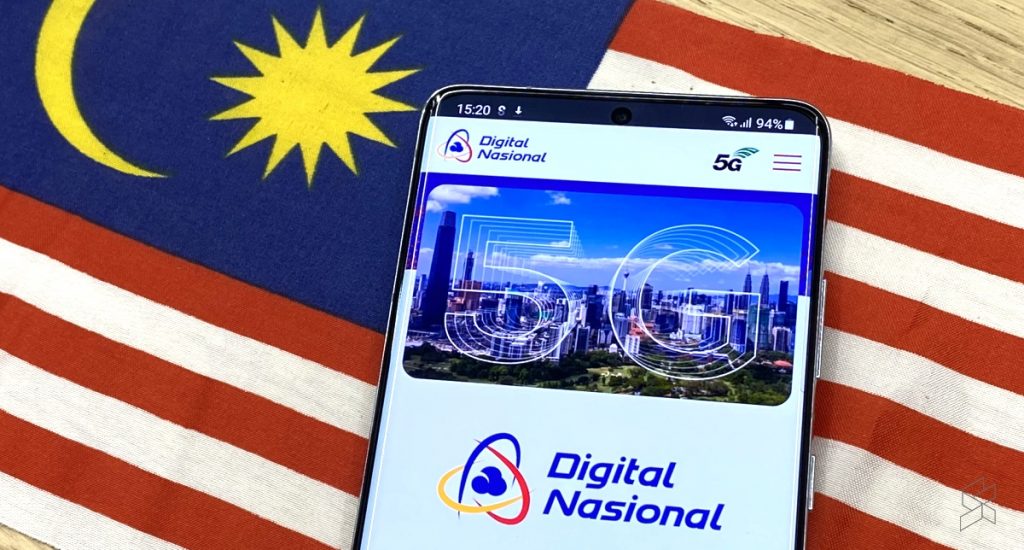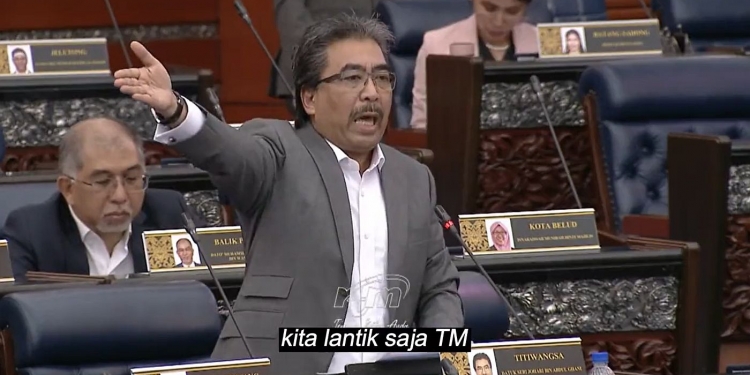Former Minister of Finance II Datuk Seri Johari bin Abdul Ghani has called on the government to trust Telekom Malaysia (TM) to handle 5G and there’s no need for Digital Nasional Berhad (DNB). He insisted that the current 5G deployment by DNB must be reviewed by the government.

On 27th February 2023, Johari told Parliament that Malaysia should learn how other developed countries manage investments or funds which do not exceed 5%. If the investment isn’t doing well, we can easily dispose of that 5% but Malaysia tends to invest substantially with large stakes exceeding 40-50%.
As a result, Malaysia has a habit of getting involved by guaranteeing the investment when there is a management problem. He suggested that Malaysia should not invest more than 5% but if the investment is doing well, it can be increased but not exceeding 10%. Johari said if things don’t work out, the government can just sell and there’s no need for a bailout.
The former minister said the government shouldn’t be involved in setting up a new entity like DNB just for 5G. He said we already have Telekom Malaysia and we can just appoint them for 5G since they currently control 80% of fibre nationwide. He said just give 5G to Telekom and they would know what to do.
BERI KEPERCAYAAN KEPADA TM KENDALI 5G, TIDAK PERLU DNB
— Johari Abdul Ghani (@joharighani) March 4, 2023
Saya telah menegaskan di Dewan Rakyat supaya kerajaan mengkaji semula pelaksanaan rangkaian 5G yg dibangunkan oleh DNB.
TM yg ada kepakaran & kemampuan dlm melaksanakan rangkaian 5G ini boleh menjalankan tanggungjawab itu. pic.twitter.com/XB8mFrlYln
He added that because there’s a lack of trust in TM, we created a new entity and this means we have to start all over again. He said a new entity will incur an annual overhead cost of RM300-400 million and on top of that, Malaysia would have to guarantee RM16.5 billion because the government wants to take this approach.
Using Thailand as an example, he said their 5G rollout didn’t involve the government and it is private-led. Today, they have achieved close to 80-90% 5G coverage while Malaysia still struggles to achieve not even 50% coverage. He said it is not too late to undo the mistake and TM which has extensive fibre coverage can solve the problem. He said even if the government wants to help TM, assistance can be provided with a certain amount or allocation so that TM can handle 5G and work closely together with all the telcos.
Former MDEC Chairman and EMIR Research Chief Dr Rais Hussin disagree with Johari’s suggestion to pass the task of rolling out 5G to TM. He said “No more monopoly pls. It must be a competitive model!” He added that giving 5G to TM alone will put other carriers at their mercy and he said a transition plan is needed so that it will not delay the rollout.
At the moment, Malaysia is currently evaluating its options for 5G deployment and the government aims to conclude their review by the end of this month. During the tabling of Budget 2023, Prime Minister said DNB will be managed more transparently so that the current 5G deployment will gain full participation of the telcos. The government wants to accelerate the current 5G rollout to achieve 80% 5G population coverage by end of this year, which is one full year earlier than DNB’s original schedule.
Communications and Digital Minister Fahmi Fadzil recently shared that DNB has spent RM1.89 billion as of 31st December 2022 and has rolled out 3,906 out of its 7,509 5G sites targetted for 80% 5G population coverage. However, in terms of accessible coverage, the 5G network only covered 38.2% of populated areas as other sites are still pending onboarding. The 5G rollout by DNB is estimated to cost RM16.5 billion over a period of 10 years.
Related reading
- 5G Malaysia: Jo Ghani says govt has no business running a 5G business
- Fahmi: DNB has spent RM1.89 billion and delivered 3,906 5G sites as of 31 Dec 2022
- Malaysia now aims to achieve 80% 5G population coverage by end of 2023, one year ahead of DNB’s schedule
- 5G Malaysia: Govt to ensure DNB is managed more transparently to achieve full participation by telcos







